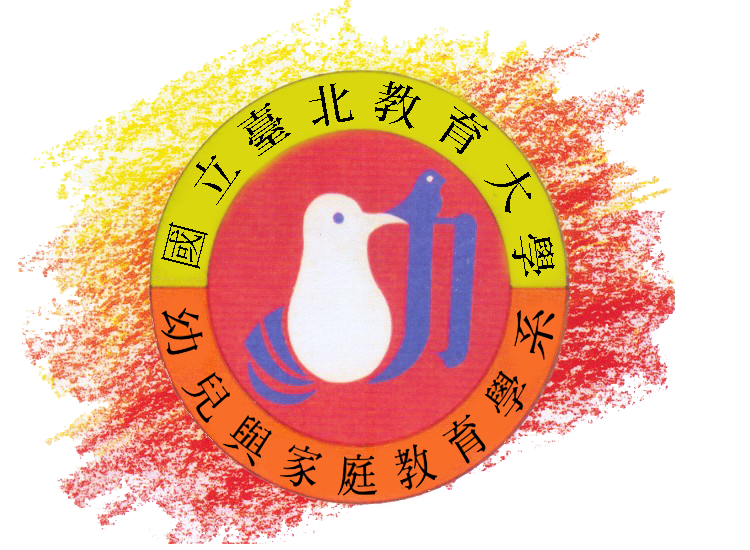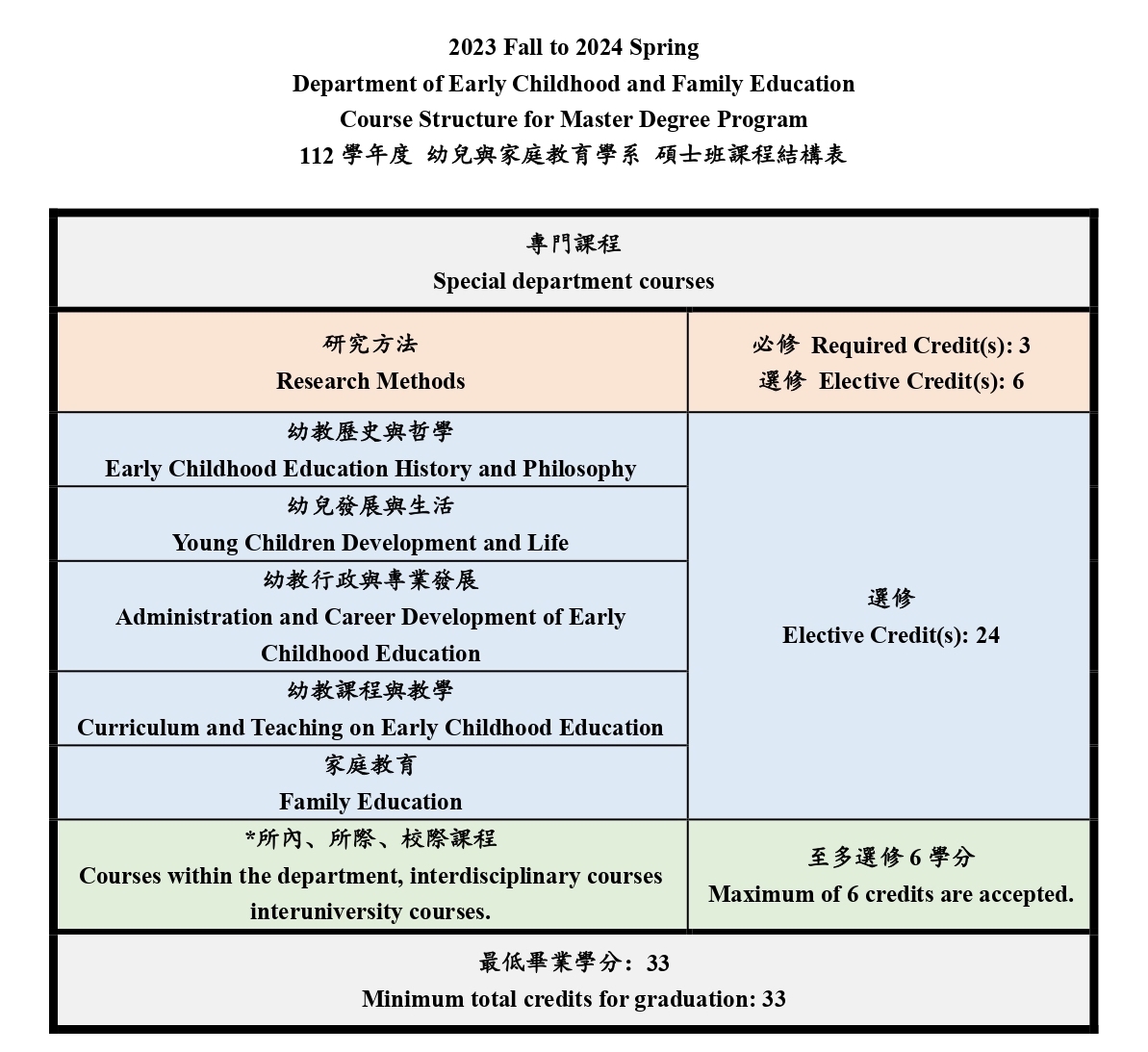

Educational Objectives of the Master Program
The Master Program aims to cultivate students with professional knowledge, research ability, and professional talents who possess practical experience as well as domestic and international perspectives in early childhood education.
l. Educational Goals
ll. Core Competencies
